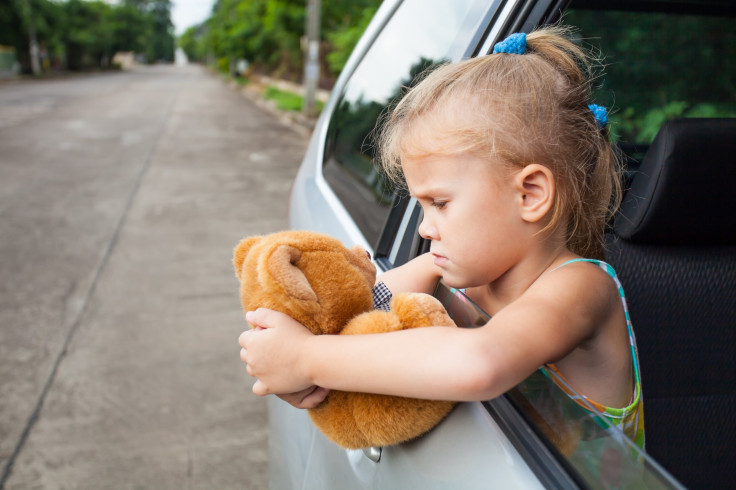How To Prepare Your Kid For A Move, And Prevent Potential Mental Health Issues

Moving can be a stressful and exciting time for anyone, but it’s especially difficult for children, who may have a harder time distancing themselves from emotional attachments like homes, friends, and school communities.
Though the issue has been researched before, not too many studies have looked into the reasons why kids struggle with moving, or why civilian families have problems separating the stress from the move itself. In a new study, researchers found that a child’s need for mental health care could rise by 20 percent after a move. These kids also had a higher risk for psychiatric hospitalizations and emergency visits.
“Knowing how moves affect psychological health issues in children is important so families and healthcare providers can anticipate those challenges and prepare accordingly,” Jeffrey Millegan, an author of the study and a psychiatrist at Naval Medical Center in San Diego, California, told Reuters. Millegan explained that “geographic moves are an increasingly common part of the American experience in general as our economy becomes more dynamic.” For example, just in 2010, about 35 million Americans, or 10 percent of the population, experienced a geographic move.
The researchers examined the medical records of 548,336 children between the ages of 6 and 17, with about 25 percent that had moved to a new city in the past year. Causes of mental health diagnoses could include anxiety, self-injury, or developmental or mood disorders. Along with the 20 percent higher risk of visiting the ER for psychiatric reasons, children who had moved in the past year had a four percent higher risk of an office visit and 19 percent higher risk of a psychiatric hospitalization.
“It shouldn’t come as a surprise to us that adolescents in particular — even more than younger people — have a difficult time making adjustments,” Christopher Bellonci, a child and adolescent psychiatrist at Floating Hospital for Children at Tufts Medical Center, told Reuters. “The job of adolescents is to find a peer group and an identity outside of the home, and that is harder when your peer group and school are disrupted by a move when they should provide support and strength.”
Moving can also have an impact on a child’s cognitive development and school participation, as well as deeper issues like safety and trust problems, social development, and the building of friendships. The American Academy of Pediatrics notes that it’s essential to plan for a child’s moving issues before the move actually occurs, in order to decrease some of the more stressful aspects of it. For example, plan on allowing children to see old friends every once in a while by visiting or by encouraging them to send letters or use social media.
In an earlier study published in January 2014, researchers found that children who moved around a lot — a process referred to as “school mobility” — was linked to an increased risk of psychotic-like symptoms. Changing schools can be a source of stress for many children, who have to leave good friends or social activities behind. “The findings highlight the potential benefit of strategies to help mobile students to establish themselves within new school environments to reduce peer difficulties and to diminish the risk of psychotic-like symptoms,” the authors wrote in their conclusion. “Awareness of mobile students as a possible high-risk population, and routine inquiry regarding school changes and bullying experiences, may be advisable in mental health care settings.”
Bellonci believes that talking to your kid about the move is the best way to alleviate stress and to guide your child through the changing social environment. "Change is stressful, and parents should talk with their kids about the transition coming up," Bellonci said.
Published by Medicaldaily.com



























